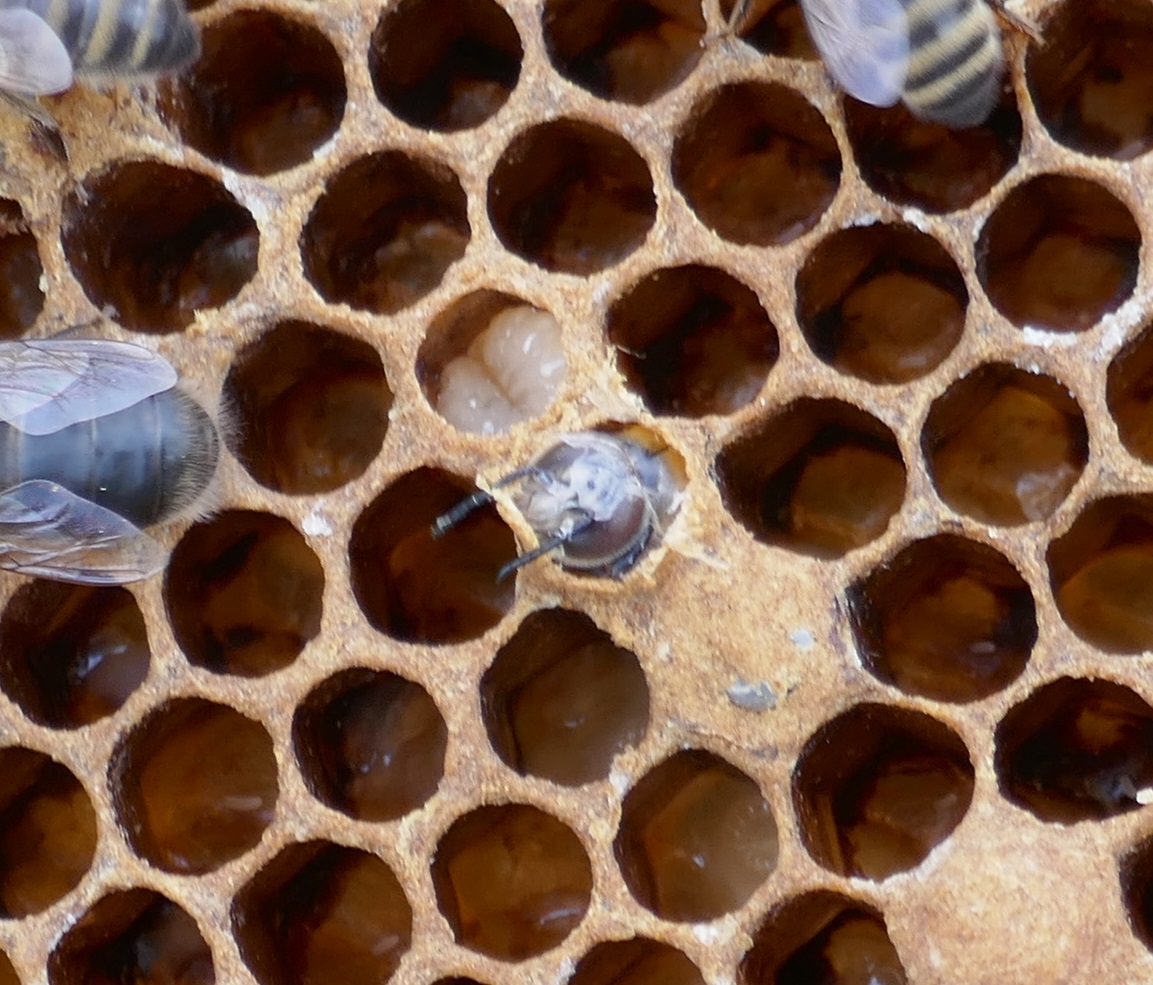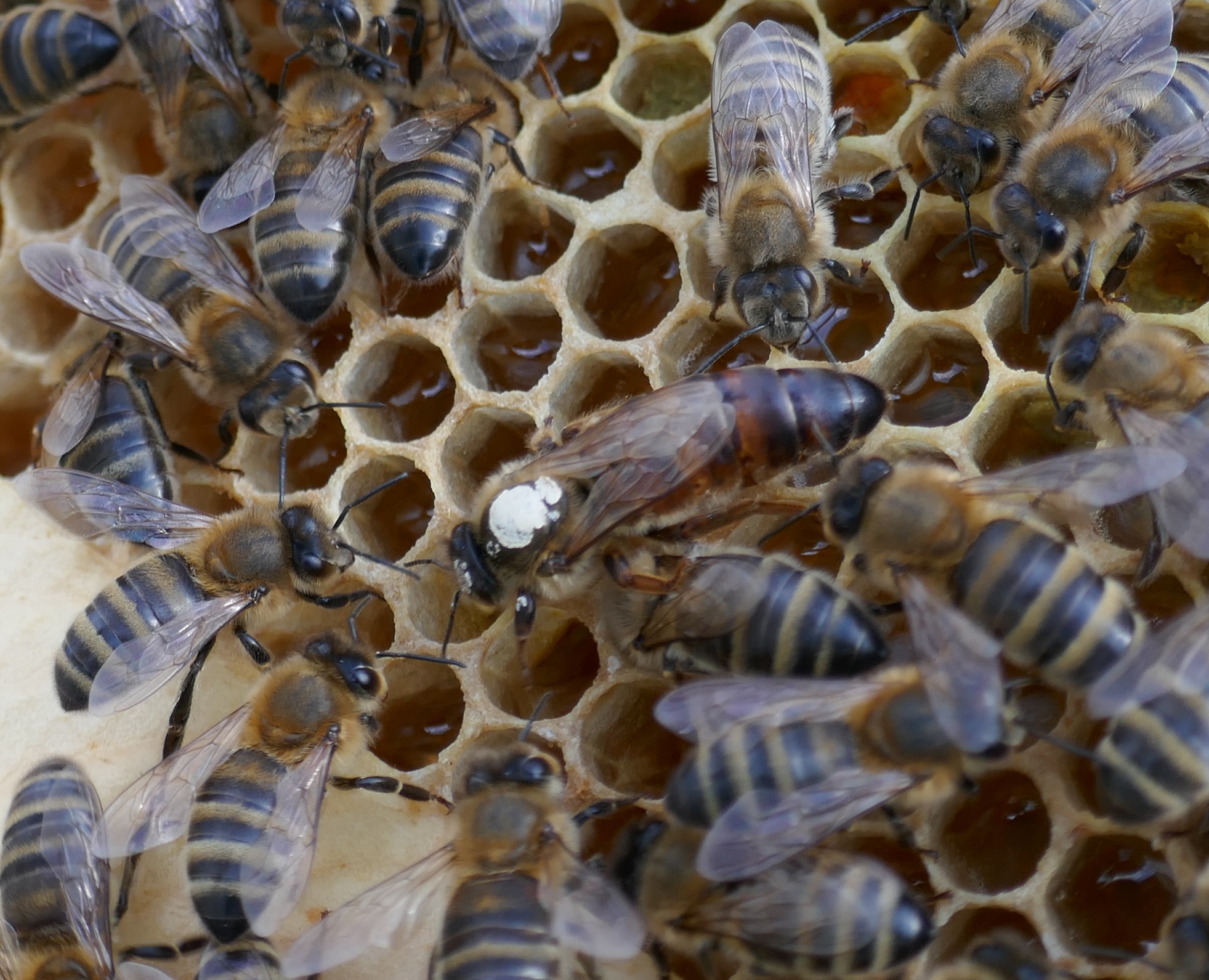 Abraham Lincoln
If given the truth, the people can be depended upon to meet any national crisis...
Abraham Lincoln
If given the truth, the people can be depended upon to meet any national crisis...
 Guildford news...
for Guildford people, brought to you by Guildford reporters - Guildford's own news service
Guildford news...
for Guildford people, brought to you by Guildford reporters - Guildford's own news service
Beekeeper’s Notes: What To Do about A Disappearing Queen
Published on: 1 May, 2021
Updated on: 1 May, 2021
Hugh Coakley keeps bees in Worplesdon
It hasn’t been a good month for our bees. It’s not going to be a good honey year as we have lost another hive.
We had inspected it last week and it seemed ok. The queen was seen, she was laying and the colony was building up. All systems go. When we looked this week though, there were no signs of the queen and, crucially, no eggs to be seen and we are not sure why.
The colony is doomed without the queen and without any eggs, they can’t raise a new saviour queen.
So what to do?

It is always lovely to see a new bee born! We can see brood in all stages here; eggs, larvae, capped cells where the pupae develop and finally a new bee.
We could wait to see what will happen as there could be a queen present but unseen. We could also merge them with another hive to build up their numbers.
Because of the uncertainty, we have decided to test the queen’s presence by slipping in a frame with plenty of eggs from another hive. If there is no queen, the bees will grab the chance and develop one or more of the eggs into new queens. We shall know within the week if we see queen cells.
It does emphasise for me that beekeeping is not a mechanical exercise. There are so many factors that it is hard to always work out exactly what is happening. We think we know but the bees don’t read the beekeeping books. They may be the most studied of insects but their methods still remain a mystery.
In Amsterdam, an annual survey seems to be showing that the decline in urban pollinators has been halted there. About a quarter of the bees noted were the honey bee which has again raised the concern that the managed honey bee population could be out-competing the wild bees. They are crediting the success to bee hotels and improvements in the availability of food sources and habitats, such as the honey highway.
It highlights for me that we can turn around the decline in number of insects if we allow the insects to live with us. We have to give habitats for insects priority.

Click on cartoon for Dragon story: Public Asked for Views on SCC’s Proposal for Reduced Speed Limits


Recent Articles
- Notice: Can You Help the University of Surrey Research Elderly Falls?
- Opinion: Waverley Has Failed Spectacularly on CIL
- Highways Bulletin: Smarter Planning for Better Bus Journeys in Surrey
- Letter: Will GBC’s New Planning Document on Building Heights Be Effective?
- Proposed New Leisure Contract Should Improve Facilities and the Council’s Income
- Witness Appeal Following Fatal Collision
- Celebration at Guildford Cathedral of Its Latest and Future Church Leaders
- Photo Feature: Now You See It…
- Letter: Snail-paced Progress for Full Weir Repair
- Mayor’s Diary: July 5 -July 20


Search in Site
Media Gallery
Dragon Interview: Local Artist Leaves Her Mark At One of England’s Most Historic Buildings
January 21, 2023 / No Comment / Read MoreDragon Interview: Lib Dem Planning Chair: ‘Current Policy Doesn’t Work for Local People’
January 19, 2023 / No Comment / Read MoreA3 Tunnel in Guildford ‘Necessary’ for New Homes, Says Guildford’s MP
January 10, 2023 / No Comment / Read More‘Madness’ for London Road Scheme to Go Ahead Against ‘Huge Opposition’, Says SCC Leader
January 6, 2023 / No Comment / Read MoreCouncillor’s Son Starts Campaign for More Consultation on North Street Plan
December 30, 2022 / No Comment / Read MoreCounty Council Climbs Down Over London Road Works – Further ‘Engagement’ Period Announced
December 14, 2022 / No Comment / Read MoreDragon Interview: GBC Reaction to the Government’s Expected Decision to Relax Housing Targets
December 7, 2022 / No Comment / Read MoreHow Can Our Town Centre Businesses Recover? Watch the Shop Front Debate
May 18, 2020 / No Comment / Read More







Recent Comments